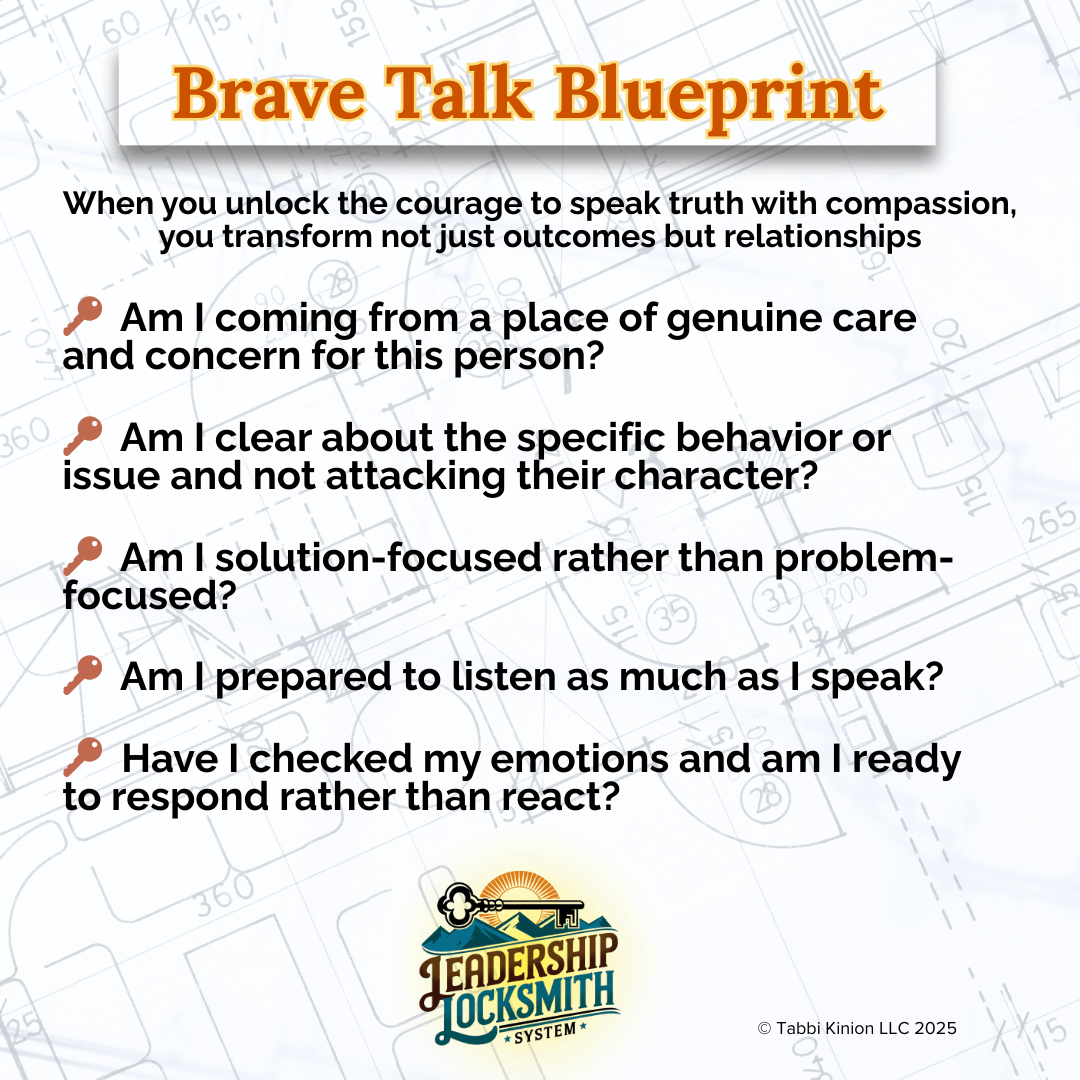
We've all been there.
That awkward moment when you realize you've been rehearsing that difficult-but-clearly-needed conversation in your head for weeks but, you just haven’t followed through yet. You know, the one with the team member who consistently misses deadlines but is otherwise brilliant. Or it’s the excited new employee who dominates every meeting trying to prove themselves, unaware they're silencing others. Or maybe it's the office superstar whose prickly demeanor is turning your team dynamic toxic.
I will never forget the day I finally gathered my courage to address an issue that had been festering in my team for months.
John (not his real name, of course) was a technically skilled, experienced, and hard-working employee – good at his job, dedicated, and incredibly knowledgeable about our systems. He was also completely unaware that his gruff communication style and impatient sighs were reducing our newest team member to tears.
Emily (also not her real name), just 20 and still in college, would literally hide in the bathroom after their interactions. She’d emerge with red eyes, insisting everything was "fine." But it wasn't fine – not for her, not for the team dynamic, and ultimately, not for John either. He had no idea what impact his behavior was having.
As I prepared for this conversation with John, I felt that familiar knot in my stomach. I wasn't ending his employment – but I was potentially ending his self-image as "just direct" and "efficient." This conversation required surgical precision: address the behavior clearly without crushing his spirit or making him defensive. I needed him to change his approach while still valuing his considerable contributions.
This moment – when your palms sweat, and you question if you're cut out for leadership – is precisely when your leadership identity is being forged.
The Hidden Cost of Avoidance
When we avoid or put off those difficult conversations, we're not being kind—we're being cowardly. And the cost is staggering.
The silence created by avoiding conversations creates a workplace where:
- Your top performers watch mediocrity, bad behavior, or even harassment go unchallenged, quietly losing respect for you.
- Your struggling employees miss crucial growth opportunities.
- The misunderstandings deepen past the point of return.
- Team trust erodes as everyone notices the elephant in the room, and you purposefully ignore it.
- Minor issues grow into career-limiting problems or, worse, disengagement and loss of essential team players.
As Kim Scott powerfully states in her book Radical Candor, when we avoid challenging directly (while caring personally), we fall into "ruinous empathy"—where our desire to be nice actually harms the person we're trying to protect. If you haven’t read her books or watched her videos - I highly recommend you look her up today!
Gallup data shows that employees who receive meaningful feedback are significantly more engaged, with 80% of employees who received meaningful feedback in the past week being fully engaged (McLain & Nelson, 2023). Even more striking, employees are 3.6 times more likely to be motivated to do outstanding work when their manager provides daily feedback versus annual feedback.
According to Gallup, meaningful feedback needs to be:
- Frequent - delivered at the moment, not saved for annual reviews
- Focused - specifically tailored to the individual's contributions and talents
- Future-oriented - emphasizing growth rather than dwelling on past mistakes
When we master giving feedback with this approach, we don't just solve problems—we transform our leadership impact.
The Brave Leader's Advantage
The leaders who master difficult conversations aren't just checking a leadership box—they're transforming their effectiveness and their team's performance.
When you become a leader who addresses issues promptly and skillfully:
- Trust multiplies exponentially—your team knows you'll be straight with them always.
- Minor issues stay small instead of growing into something major.
- Your culture becomes one of growth and excellence.
- Your own leadership confidence compounds with each successful conversation.
- Team members actually thank you for the clarity and guidance to help them improve.
That momentary discomfort of a difficult conversation is nothing compared to the lasting damage of silence. Your courage to speak up today could be the turning point in someone's career tomorrow.
This week's leadership code word is BACKBONE.
Not like a brittle and weak hunched-over backbone, but the strong, supportive, and flexible kind that helps you stand tall when it matters most. Having backbone in leadership means finding the courage to say what needs to be said, even when your hands might shake. The most meaningful conversations aren't going to be easy— but that's exactly what makes them worthwhile. When you develop this kind of backbone, you don't just solve problems—you build trust that transforms your entire team.
To help you strengthen your leadership backbone, I've created this Brave Talk Blueprint—a simple framework to turn those dreaded conversations into opportunities for growth and connection:

Have That Talk—This Week
My challenge to you is simple but powerful: Identify one conversation you've been avoiding and commit to having it within the next week.
Remember, the perfect moment won't arrive. Your perfectly rehearsed script will likely go out the window.
However, your genuine care for your employees, your clear focus on the issue (not the person), and your solution-oriented approach will carry you through. And in the end, the benefits will quickly overshadow any discomfort.
As Brené Brown puts it, "Clear is kind. Unclear is unkind." Avoiding the truth doesn't protect your team members—it robs them of the opportunity to grow.
The conversation you're dreading is the very one that could transform someone's career trajectory—and your leadership legacy.
What conversation have you been putting off that needs to happen this week?
This framework is from the Leadership Locksmith System, designed to help leaders unlock their confidence, build exceptional teams, and find balance in leadership. For more information on this customized-to-you coaching and training program, message me!





















0 Comments